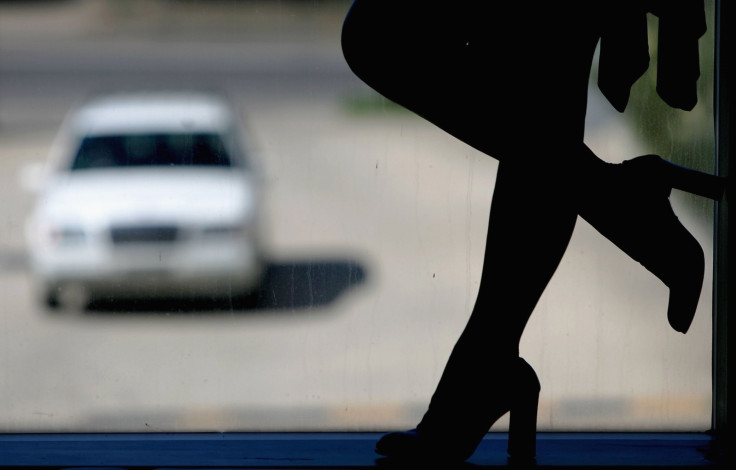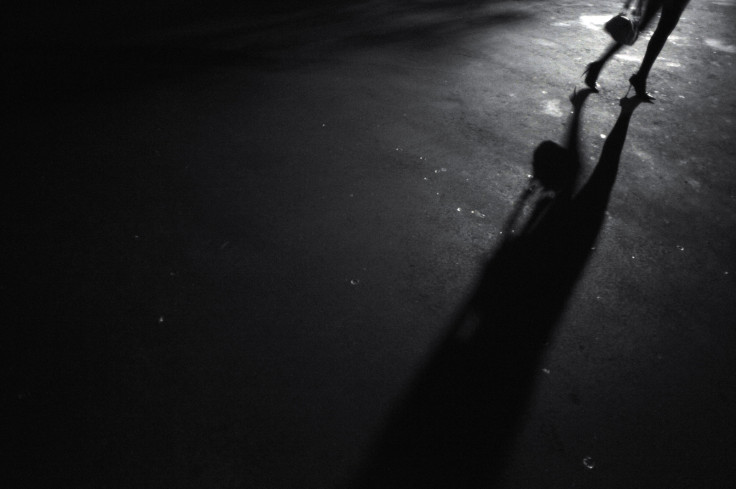Sex trade survivors: 'Amnesty wants to decriminalise every human rights violation intrinsic to prostitution'

Amnesty International is set to vote in the coming days on whether to support the global decriminalisation of prostitution. If adopted, one of the largest human rights organisations in the world will call for governments to eliminate most laws that prohibit selling or buying sex. The decision, justifiably, is contentious.
It argues that prostitution is a matter of free choice, a stance supported by advocates of the commercial sex industry – including the Global Network of Sex Work Projects, whose petition backing the policy has clocked up over 8,000 signatures. Amnesty's proposal suggests consenting adults have the right to sell sex. "Sex work means that sex workers who are engaging in commercial sex have consented to do so," Amnesty's proposal reads.
But equally, critics and anti-trafficking activists say decriminalisation fails to take into account backgrounds of economic deprivation, pimp coercion and the intrinsic link between prostitution and sex trafficking.
One group of women, SPACE International – which stands for Survivors of Prostitution-Abuse Calling for Enlightenment – is leading the argument against decriminalisation. Supporters of the Nordic model, which criminalises only the purchasing of sex rather than the sale – essentially, the clients – told IBTimes UK why they are fighting back against Amnesty's proposal.
'Decriminalising commercial sex industry does not make it any safer'
Bridget Perrier is the co-founder of public awareness organisation Sextrade101. A First Nations woman from Canada, she was lured into prostitution at the age of 12 and trafficked across the country for 10 to 12 years. She says prostitution places Canada's indigenous women at risk.
"I was the perfect candidate for prostitution, based on my race and gender, and I was under pimp control for 10 years," she says. "I live in a country where aboriginal and indigenous women are going missing and being murdered by the droves. I have seen serial killers targeting women specifically because of their high-risk lifestyle and their involvement in prostitution. Decriminalising the commercial sex industry does not make it any safer."
Perrier argues prostitution is inherently harmful, whether legal or illegal. In London, prostituted women face a mortality rate 12 times higher than average, according to charity Care, which advocates the Nordic model. Perrier is the stepmother of Angel, whose biological mother Brenda Wolfe was murdered by Robert Pickton – a serial killer who targeted both prostitutes and drug addicts in Vancouver.

Despite having exited the sex trade 17 years ago, Perrier still suffers the effects of prostitution. She says: "I can't properly have a baby, I have major issues when it comes to reproductive health and I have psychological problems – I still sleep with the lights on unless my partner is with me. I have major anxiety about my daughters – are they going to be targeted?"
"I don't think the decriminalisation of men being able to have access to our bodies is a benefit in any way," she says. "Fifteen years ago, when I was encased in prostitution, I would have said there were so many benefits because that was all I knew at the time. It was my shield to say what I was doing was OK."
Amnesty stated in the Draft Proposal on Sex Work: "While systematic factors and personal circumstances related to poverty, discrimination and gender inequality can have a strong bearing on some individuals' decision to do sex work, Amnesty International holds the position that such conditions do not inevitably render individuals incapable of exercising personal agency in these contexts."
But Perrier argues prostitution is never a choice. "During the 'game' I used to say 'I chose this' – but to choose prostitution, you have to have two equal opportunities."
'We need to shift the onus to men'
Fiona Broadfoot, from Bradford in West Yorkshire, was exploited into prostitution at the age of 15. She met a pimp and was trafficked to London within two weeks. In the time she was in the sex trade, Broadfoot was criminalised but her pimp never was. She exited the industry in 1996 after the death of someone close to her and now works in Bradford with women and girls at risk of, or involved in, sexual exploitation.
"My life in prostitution ended when I saw on television a man had murdered my beautiful 17-year-old cousin, Maureen," she says. "The man had killed two women before, including a 19-year-old woman who was a prostitute."
My life in prostitution ended when I saw on television a man had murdered my beautiful 17-year-old cousin, Maureen
Broadfoot is a strong advocate of the Nordic model, which decriminalises those selling sex while providing them with support to help exit the trade. SPACE International states Amnesty International's resolution does not consider the gains of the model, which sees commercial sex as a system of gender-based violence.
"My feelings around Amnesty campaigning to decriminalise activities surrounding prostitution scares me," she says. "It terrifies me. I don't believe women should be criminalised in prostitution unless they are running brothels or pimping – facilitating it. We should absolutely decriminalise women but we should turn the focus to men.
"Most pimps, traffickers and those earning money from prostitution, or who are getting sexual gratification from it, are men. We need to shift the onus on to them. I can't get my head around normalising and legitimising the exploitation of women."
To address the problem means addressing some of the real reasons women are lured into the sex trade, which include poverty and inequality. "Perhaps in some cases Amnesty thinks decriminalisation will improve the lives of women – but they are seriously deluded," Broadfoot says. "We should be focusing on giving women and girls real opportunities."

'Decriminalisation says all women are potential commodities'
Rachel Moran, one of the founding members of SPACE International, was prostituted for seven years in Dublin and other Irish cities from the age of 15. In 1998, she managed to extricate herself from the sex trade, at the age of 22. She has been active in the push for Ireland to adopt the Nordic model and works with the Coalition Against Trafficking In Women and the European Women's Lobby. Her memoir, Paid For, was published in 2013.
She says one of the most significant issues with decriminalisation is the failure to make a distinction between women being prostituted and those who pay for and profit from their exploitation.
"There are massive problems with decriminalisation. One of the problems we have to deal with is the idea that it is somehow different to legalisation – but they are two sides of the same coin with very few differences of any real significance," Moran explains.
"What you do if you decriminalise across the board is you decriminalise pimping, you decriminalise brothel-keeping, you decriminalise punting – you decriminalise every human right violation intrinsic to prostitution.
"Decriminalisation is the worst thing for women in that country. Not just the women in prostitution, but for all women. Because what you are saying is that they are all potential commodities, depending on what way the circumstances of their lives shape out."
Decriminalisation is the worst thing for women in that country. Not just the women in prostitution, but for all women
Another issue is the intrinsic link between prostitution and sex trafficking, she says. Amnesty's proposal urges its membership to see the two phenomena separately, which disregards the problem of supply and demand – the demand for prostitution fuels trafficking to support it.
Not all women in prostitution are victims of sex trafficking, but all sex trafficking victims are sold into prostitution. And there is evidence to suggest sex trafficking increases in countries that have legalised prostitution – a 2013 study using data from 150 countries found legalisation had failed to eliminate the criminal, underground sector from the sex industry.
For women in the commercial sex trade, decriminalisation prevents access to help and support to exit. "We are in touch with young women working in brothels in New Zealand, which is the closest model to what Amnesty are proposing," Moran says.
"These women are telling us their earnings have gone through the floor, the market has massively expanded and they are unable to get out of prostitution because decriminalisation means they are not provided with exiting services – any more than they would be provided with them if working as a hairdresser.
"As soon as you decriminalise prostitution, you socially sanitise it. So what reason is there to get out of a situation that is perfectly fine, as far as the state is concerned?"
© Copyright IBTimes 2025. All rights reserved.






















